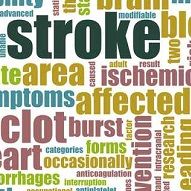Should NOACs Use Be Expanded to Prevent Stroke?
Are NOACs right for patients with valvular heart disease and atrial fibrillation? Some of the evidence is persuasive, a study found.

New oral anticoagulants (NOACs) appear to show promise for reducing the risk of ischemic stroke in patients with valvular heart disease with atrial fibrillation (AF).
A review of several major trials of NOACs, conducted by Saad Ahmad, MD, of the Division of Cardiovascular Health and Disease at the University of Cincinnati College of Medicine in Cincinnati, OH, and colleague Heath Wilt, was published in The Open Cardiovascular Medicine Journal.
The researchers say their aim in the present study was “to carefully examine the available evidence from pivotal Phase 3 clinical trials of NOACs and determine how they might perform in patients with AF and concomitant valvular heart disease.”
Currently, guidelines developed by the American Heart Association, along with several other organizations “underscore the use of vitamin K antagonists (VKAs)” according to the researchers, especially for patients with both valvular heart disease and AF.
NOACs are approved only for people with AF that is not caused by a valve problem.
The reason it is particularly important to take stroke prevention into consideration for this population of patients is that they are at a higher risk for a cardioembolic event, even with a normal heart rhythm. Observational and retrospective studies have shown that thrombo-prophylaxis can be beneficial. Additionally, say the researchers, “AF is believed to account for at least 10-12% of all ischemic strokes.”
Although many of the trials the researchers examined were not supposed to include patients with valvular heart disease, their post-hoc analysis shows that these patients were included sometimes. The researchers say, “In some of these trials, the included patients with varying degrees of mitral regurgitation, history of mitral repair and bioprosthetic valve, and not all severities of mitral stenosis were a contraindication for these trials.” The patients with significant valvular disorder (SVD) had similar results as other participants.
The reviewers conclude, “Given the background of the subanalysis of patients with valvular heart disease included in the trials, the time is right for randomized clinical trials for patients with SVD with AF on target specific oral anticoagulants [NOACs] powered for evaluation of their safety and efficacy in valvular AF patients.”